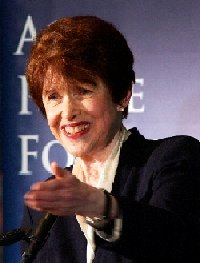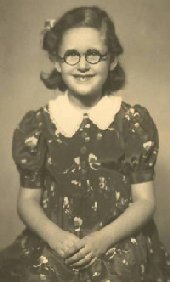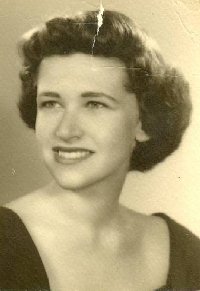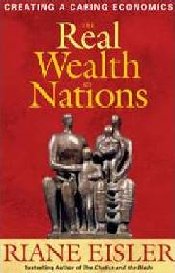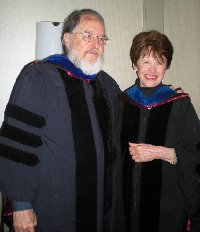|
RIANE EISLER - NAZI SURVIVOR, FEMINIST LAWYER
AND THEORIST, AUTHOR OF THE CLASSIC "THE CHALICE AND THE BLADE" AND OTHER BEST SELLERS, GLOBAL AMBASSADOR
FOR WOMEN'S RIGHTS,
With what money they had left, my parents purchased a visa to Cuba, the only place other than Shanghai open to Jewish refugees. I spent the next seven years in the industrial slums of Havana. Even after my parents again prospered, they did not move from the slums; for them Cuba was a temporary anteroom while they waited for entry into the Promised Land. From the beginning, they scraped together enough money to send me to good schools; as they became more affluent, I ended up attending one of Havana's best schools. I commuted by streetcar, experiencing a kind of daily culture shock because of the difference between that part of the city and the dirty tenements where I lived.
We were admitted to the United States in 1946, and after two years in high school I enrolled at the University of California at Los Angeles, majoring in sociology and anthropology, then attended one year at the UCLA School of Law until I got married in 1953. In those years, it was understood that girls went to college to get their Mrs.degree. My parents, for whom my education had been a top priority, also assumed this. So I quit law school and moved to Ann Arbor, Michigan, with my new husband. Except for the birth of two lovely daughters, it was not a successful union. I was expected to be the "little woman" behind the important man, a role I tried to fulfill but could never adjust to. So in 1963, I again applied to UCLA law school and in 1965 obtained my JD degree and passed the California bar. I was part of the group interviewed by top law firms. Though most rationalized their failure to make me an offer on the grounds that I wanted to work only part time, it was clear the real reason was that I was a woman. Still, I managed to get a part-time job with a Beverly Hills entertainment law firm, and worked there for a couple of years. Then, within three months I quit my job, my marriage, and smoking. This was in the late 60s, and with thousands of other women I awoke as if from a long drugged sleep to realize that many problems I had thought were just me were actually social problems I shared with many other women. I had already been involved in the civil rights movement, but now I threw myself into the women's movement. I incorporated the Los Angeles Women's Center, the first such center on the West Coast, and founded the first center in the United States on Women and the Law.
At that time, the notion was that discrimination against women was "just the way things are." Want ads were segregated by sex. In rape cases, the victim was essentially on trial for prior sexual activity, and even in community property states like California, control over marital property was exclusively the husband's. The purpose of the Women's Law Center, accredited as an internship program at the University of Southern California School of Law, was to fight against this, as well as to provide free legal services to low-income women. In 1969 we filed a Friend of the Court brief with the Supreme Court in a case involving extreme gender discrimination, proposing the then radical idea that women should be considered persons under the Equal Protection Clause of the 14th Amendment - which the Court rejected until a few months later finally it struck down a grossly discriminatory law on that ground. I was also specializing in family law on my own, drafting egalitarian pre-nuptial agreements. I was by then speaking about women's rights at many platforms, including the California bar. I was invited to offer courses on Women and the Law at UCLA, and later to initiate its Women's Studies program-the latter ending in a disastrous (but unfortunately all too common) attack on me by "sisters" who, disagreed with my mainstreaming approach, and took over the program. This was a difficult time for me. I was exhausted and discouraged. I was still practicing law, lecturing on women's rights, traveling, trying to raise my children, working to make a living. After the sudden death of both my parents, I became very ill. And it was then I began to reflect on what I wanted to do with my life. So I gave up my law practice and began writing. My first book was Dissolution, No-Fault Divorce, and the Future of Women.** It predicted what later became known as the "feminization of poverty. My second**was the only mass paperback on the proposed Equal Rights Amendment: The Equal Rights Handbook: What ERA Means for Your Life, Your Rights, and Your Future. But it came too late to expose the lies about this simple Amendment, and when ERA failed to obtain the needed number of ratifying states, I realized that as important as it is to change laws, we have to change the underlying culture that condones injustice. Thus began my return to a question that had begun in my childhood: Is insensitivity, injustice, and violence human nature, or are there alternatives, and if so, what are they? It was this question that eventually led to my multidisciplinary cross-cultural study of society. The first book out of that research was The
Chalice and the Blade: Our History, Our Future. It introduced two new
social categories: the partnership system and the domination system. It showed how conventional categories such
as right or left, religious or secular, capitalist or socialist fail to show the importance of how society structures
gender roles and relations. It also proposed that evidence indicates the status of women was higher in the earliest
centers of civilization, which oriented more to the partnership side, until during a period of great disequilibrium
there was a shift toward the domination side, a theory since supported by others. This is a recurring theme in my writings as well
as my social activism. For example, I introduced a new model for human rights that fully integrates the rights
of women - starting in 1987 with the first article in The Human Rights Quarterly on what has since become known
as "women's rights as human rights." My work to expand the scope of human rights theory and action continues
most recently with a chapter for a Cambridge University Press book that urged the inclusion of horrendous, widespread,
often legally condoned, discrimination and violence against women and children. I also helped organize international
conferences.
Besides my organizational and educational work
as president of CPS, I teach Partnership Studies at the California Institute for Integral Studies graduate program
on Transformative Leadership. I also continue my research and writing, as well as speaking nationally and internationally,
including recently at the United Nations GENERAL ASSEMBLY in New York. David Loye and Riane Eisler in
2008
|
